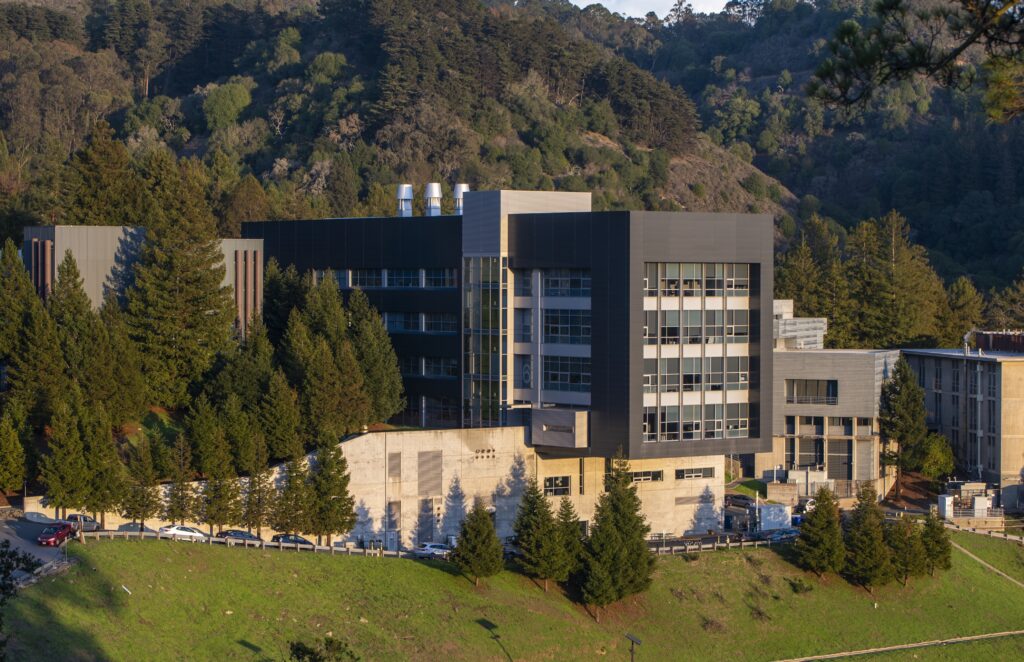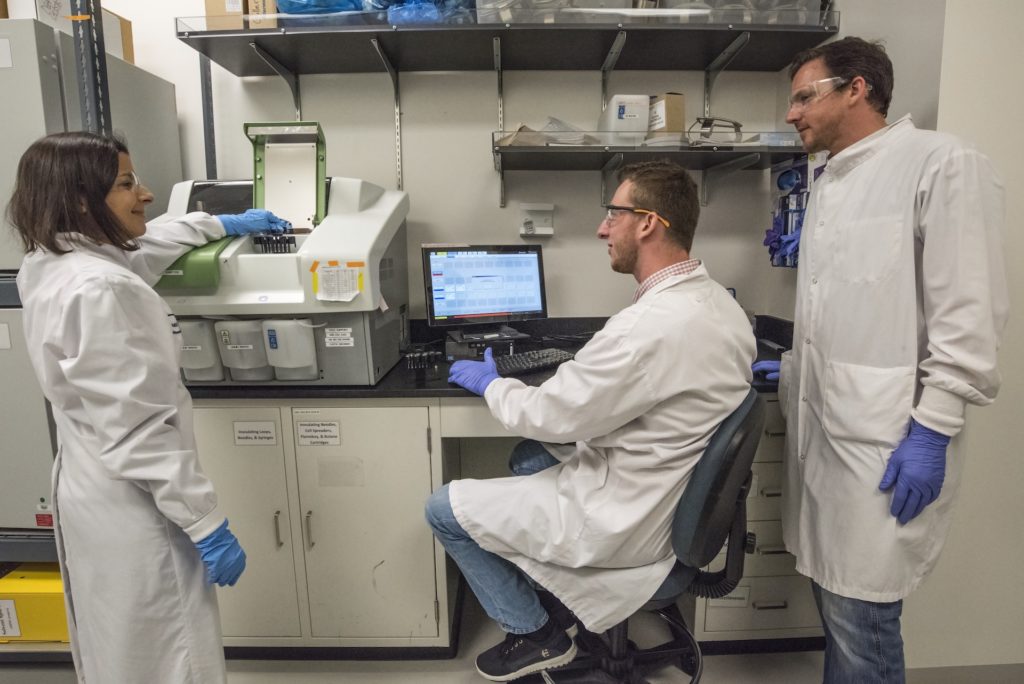The ABPDU provides its collaborators with access to a wide variety of bioprocessing equipment that helps them scale up biotechnologies and assess their commercial feasibility. But collaborators can also leverage ABPDU’s proximity and partnerships with other world-class Berkeley Lab facilities to gain access to a wide array of analytical capabilities.
The Molecular Foundry is a user facility at Berkeley Lab that works with partners around the world to study materials at the nanoscale. The ABPDU and its collaborators have used the Foundry’s imaging capabilities — including electron microscopes, X-ray diffraction, and liquid chromatography-mass spectrometry — to analyze the materials they are working with.

These capabilities help ABPDU’s collaborators achieve a better understanding of their materials. This knowledge can assist with downstream conversion and product recovery processes.
In turn, the Molecular Foundry’s staff members and users have also used ABPDU capabilities, including its scale-up fermentation and analytical capabilities.
Behzad Rad, a principal scientific engineering associate in the Foundry’s Biological Nanostructures Facility, has worked with ABPDU staff to facilitate these cross-facility collaborations.
Rad said the Foundry’s users typically have trouble finding access to all the capabilities they need in one place, and often have to travel across states. Giving users access to a broad array of expertise in a single location can help them make rapid progress on their research.

“This strengthens our ability to serve our users,” Rad said. “Having this complement of techniques and expertise is really key.”
As an example, biotech company X-Therma, a previous user of the Molecular Foundry, was also able to utilize ABPDU capabilities.
“Our team was able to use ABPDU’s rheometer to investigate properties of X-Therma’s unique antifreeze peptoids that are being used in an FDA Breakthrough Device to preserve kidneys for up to 5 days prior to transplant,” said Mark Kline, CTO and Co-founder of X-Therma.
The ABPDU can also collaborate with other Berkeley Lab facilities when research requires more analytical capabilities. ABPDU researchers are currently utilizing the Advanced Light Source’s powder x-ray diffraction capabilities to quantify and identify the variability of different feedstocks. Such analyses help to understand the biomass substrates and provide insight into the downstream conversion process.